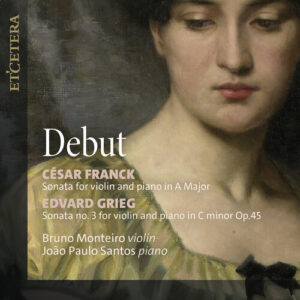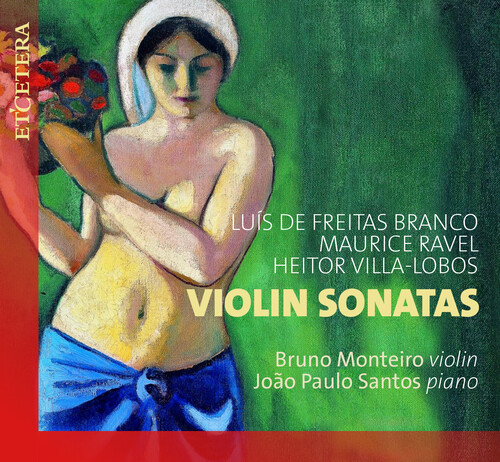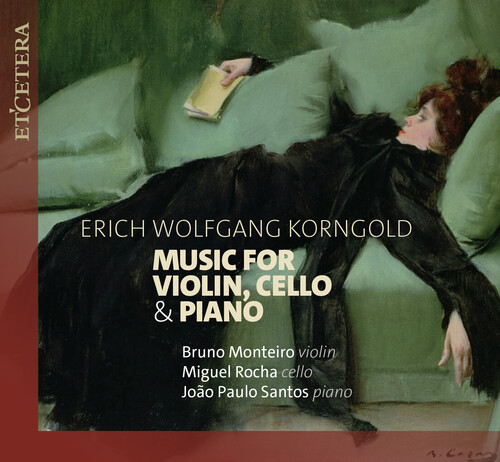1. Trio for Piano, Violin and Cello in D Major Op.1: Allegro non troppo, con espressione
Composer: Erich Wolfgang Korngold
Artist(s): Bruno Monteiro, Miguel Rocha, João Paulo Santos
2. Trio for Piano, Violin and Cello in D Major Op.1: Scherzo (Allegro)
Composer: Erich Wolfgang Korngold
Artist(s): Bruno Monteiro, Miguel Rocha, João Paulo Santos
3. Trio for Piano, Violin and Cello in D Major Op.1: Larghetto (Sehr langsam)
Composer: Erich Wolfgang Korngold
Artist(s): Bruno Monteiro, Miguel Rocha, João Paulo Santos
4. Trio for Piano, Violin and Cello in D Major Op.1: Finale (Allegro molto e energico)
Composer: Erich Wolfgang Korngold
Artist(s): Bruno Monteiro, Miguel Rocha, João Paulo Santos
5. Sonata for Violin and Piano in G Major Op.6: Ben moderato, ma con passione
Composer: Erich Wolfgang Korngold
Artist(s): Bruno Monteiro, Miguel Rocha, João Paulo Santos
6. Sonata for Violin and Piano in G Major Op.6: Scherzo: Allegro molto (con fuoco) – Trio – Moderato cantabile – Allegro molto (con fuoco)
Composer: Erich Wolfgang Korngold
Artist(s): Bruno Monteiro, Miguel Rocha, João Paulo Santos
7. Sonata for Violin and Piano in G Major Op.6: Adagio: Mit tiefer Empfindung
Composer: Erich Wolfgang Korngold
Artist(s): Bruno Monteiro, Miguel Rocha, João Paulo Santos
8. Sonata for Violin and Piano in G Major Op.6: Finale: Allegretto quasi andante (con gracia)
Composer: Erich Wolfgang Korngold
Artist(s): Bruno Monteiro, Miguel Rocha, João Paulo Santos
9. Tanzlied des Pierrot : Tanzlied des Pierrot, from the Opera Die Tote Stadt for Cello and Piano Op.12
Composer: Erich Wolfgang Korngold
Artist(s): Bruno Monteiro, Miguel Rocha, João Paulo Santos










Reviews
There are no reviews yet.